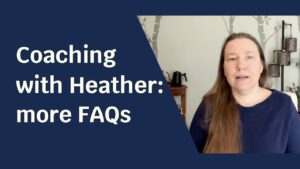Growing up different
I’ve struggled with a lot of anxiety throughout my life. Mostly social, but in other areas too (change, new things, new places, doing things differently). Because my brain works a little bit different than how most people’s do, and therefore I communicate differently and my body functions a little differently.
Growing up I often felt like I didn’t fit, like I was doing things wrong, and so I was constantly on edge around other people. I would give someone a compliment and they would take it as rude. I would try to help out and they would be offended. I would make a joke and everyone would stare at me in openmouthed shock.
Growing up I often felt like I didn’t fit, like I was doing things wrong, and so I was constantly on edge around other people.
Over time, because a lot of my interactions with people were like this, I started second guessing myself and triple guessing myself and wondering, “What am I supposed to do in this situation? How can I make it go right?” But I had no clue. I thought I was doing what everyone else was doing, but at best it would fall flat, and at worst people would edge away. Every social interaction became a minefield, trying not to say/do the wrong thing and set off a bomb, but I had no idea what that wrong thing would be this time.
I spent a lot of time replaying conversations in my head to try to figure out what went wrong, what I should have said, how to fix it, and what to say next time. What if people laugh at me? Or they react like I’m weird? Or they give me that look that’s like, ‘why did you just say/do that?’
I spent less and less time with people. I put myself out there less, and stuck to my safe people, but those got fewer and fewer in numbers, and my world got smaller and smaller.
Of course I developed anxiety, but it’s not because there was anything wrong with me. It is a completely reasonable reaction to avoid things that hurt you.
What anxiety is doing
Anxiety isn’t something that’s gone wrong with your brain, it’s a healthy fear response that is responding to all the things instead of knowing clearly what to avoid and what you can handle. Because it’s gotten so many mixed messages about what might be dangerous, it defaults to avoiding anything that might be dangerous.
Over the last several years, I’ve found strategies that helped me.
First of all, to recognize that it wasn’t because there was anything wrong with me. As in, I didn’t do anything socially “wrong”, it was just that I did something that other people weren’t expecting. And sometimes that can be misinterpreted as bad, but there was nothing actually wrong with what I was doing. There was nothing wrong with who I am.
Then, to deal with the physical sensations that arise when I have an anxiety reaction.
And ultimately, I learned how to tell the difference between a painful circumstance that I need to deal with and an anxious thought that is making that painful circumstance even worse, and how to deconstruct those painful thoughts without gaslighting myself.
These are the things that I’m going to be covering in my anti-anxiety course in February.
I’ve picked out the techniques that have helped me the most in dealing with my own anxiety, and that are most reliably helpful for my clients.
In each meeting, we’ll start with one physical technique, to help our nervous systems settle enough that we can take in new info. Then we’ll go over some theory (how anxiety works, how to separate painful thoughts that you can deconstruct from real circumstances that you have to deal with), and then we’ll put that theory into practice with a thought based technique.
If this is something you’re interested in exploring more, and you’d like a small group to practice with, or to treat it as an asynchronous course (there will be recordings of everything), this might be a good fit for you.
Here’s where you can find more info: Anti-Anxiety Practices for Autistics
If you find even one or two of these techniques help you, and you use them even intermittently, it can make a big difference over time in your ability to do the little and big things you need (and want) to do every day, to be around people, and to build the life you really want.




